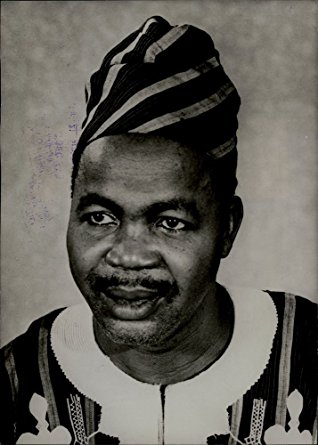The 28th of February, 1948, was a landmark day in the nation's history. A large contingent of former servicemen who were tired of unfulfilled promises by the colonial government, drafted a petition seeking redress of grievances for presentation to H.M's Governor, Sir Gerald Creasy. As they marched, unarmed and defenseless, they were set upon by government troops at Christiansborg cross-roads. On arrival, they were asked to halt, but they ignored the order. Therefore, Superintendent Colin Imray ordered his men to fire. They however fired into the air but the marchers moved on. The superintendent then took matters into his own hands and fired into the procession, killing three of them, namely; sergeant Adjetey, Corporal Attipoe and Private Ordartey Lamptey. When the smoke cleared, over sixty former loyal soldiers were badly wounded on the streets of Accra. The Gold Coast would never be the same. Rioting and looting lasted for five days.
On 1 March, 1948, the Riot Act was read and Governor Creasy declared a state of emergency. Strict press censorship was imposed over the entire country. On 12 March, the Governor issued Removal Orders and police were dispatched to pick up and arrest the entire UGCC Central Executive. Kwame Nkrumah, Dr. Danquah, E. Akufo Addo, William Ofori Atta, E. Obelsebi Lamptey and E. Ako Adjei were arrested, detained and exiled to the Northern Territories.
The events that led to this rioting and its aftermath are considered below:
In January 1948, Nii Kwabena Bonne III, a Ga Chief, a business man and a strong civil leader organized a general boycott of all European imports. This was because; the Europeans and Syrians were the major importers and exporters of goods in and out of the country. The next month, that is February, it was agreed that, the boycott would be lifted on the 28th day of the month.
Thereafter, riots broke out in Accra. European and Asian stores were looted by an angry mob. The rioters forced open the Central Prison; that is the Ussher fort prison and set free its inmates. The riots spread to other parts of the country killing over 29 people and leaving about 200 more injured.
After the riots, the Nationalist leaders in the Gold Coast sent a strong worded cable to the Secretary of State in London. The Secretary of State, Arthur Creech Jones however blamed the Nationalist leaders for being responsible for the disturbances in the country. Consequently, on March 18th of the same year, six of the leading nationalist were arrested and detained at the Kumasi prison. They were popularly referred to as the ‘Big Six’. The "Big Six" shared close quarters in prison. Nkrumah noticed that his comrades began to display a growing hostility toward him. During discussions, the other men usually opposed his points of view. They began to blame him for their arrests and for why they were suffering in prison. Then they let Nkrumah know that they now regretted making him the leader of the UGCC because of what he had got them into.
In March 1948, agitations to release the Big Six” six drove the colonial government to set up a commission headed by Aiken Watson, together with Dr. Keith Murray and Andrew Dalgleish, a well known authority on trade unionism.
In April 1948, the ‘Big Six’ appeared before the Watson commission, there they expressed their grievances concerning education and trading discrimination in favour of foreigners. These complaints among others were presented to the colonial government as the Watson commission report.
On October 26 1948, the new governor, Sir Gerald Creasy was authorized by the colonial office to set up a 37 –member committee called the Coussey Commission.
The report of the Commission recommended an enlarged legislative council which was to have two chambers, a responsible executive council with a majority of Africans and a new system of local government. Also, it was included that those who were 25 years and above were eligible to vote and these, the British government accepted.
The recommendation of the Coussey Commission formed the basis of the 1950 constitution. Under it, there was to be an executive council comprising three ex-officio members and eight Ghanaian ministers, a single legislature which was to consist of a speaker, three ex-officio ministers, six special members representing mining and commercial interests and seventy five members from parts of the country.
The riots and their political aftermath marked the beginning of the process of independence for the Gold Coast as Ghana, The first Sub -Saharan British Colony to achieve independence.


